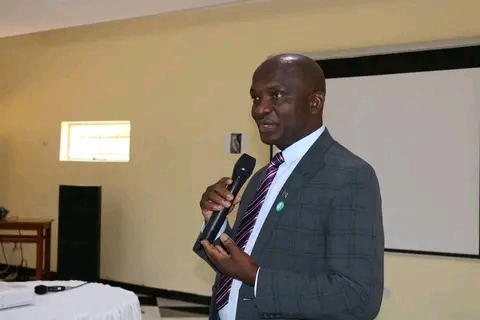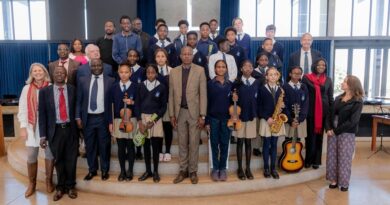Youth Engagement in Climate Action Emphasized at COP28 Preparatory Meeting in Zambia
Mr. Ephraim Shitima, Director of the Climate Change and Green Economy Department at the Ministry of Green Economy and Environment, highlighted the critical role of youth in climate action during the 28th United Nations Conference of Parties (COP28) Final National Preparatory Meeting.
Mr. Shitima, who also serves as the Chair of the African Group of Negotiators on Climate Change (AGN), stressed the importance of targeting the youth as a key demographic for the success of climate action strategies.
He welcomed their active involvement, emphasizing the need to harness their untainted perspectives for a transformative mindset change crucial for achieving climate action at all levels.
In preparation for COP28 scheduled from 30th November to 12th December 2023, Mr. Shitima urged delegates to extensively read and research, underlining the significance of a clear understanding of the concepts discussed during the conference for effective participation.
During the meeting, the Local Conference of Youth on Climate Change in Zambia presented a statement underscoring the pivotal role of young people in driving climate action.
Represented by Esnart Njobvu and Dalisto Goma, the youth demanded active inclusion in climate policy making and decision-making processes to ensure their voices are heard in shaping climate policies, particularly regarding Loss and Damage.
The youth urged the Zambian Government to collaborate with other nations to establish and implement a Loss and Damage mechanism within a year.
They emphasized the urgency to address the devastating effects of climate change, including increased droughts, erratic rainfall, and food insecurity.
Their demands included improved accessibility to climate change information, addressing language barriers, funding for adaptation efforts, and capacity building for schools.
The youth called for the introduction of compulsory climate funding in various institutions and community projects, guided by strict policies to promote equal funding opportunities and deter tree cutting.
They also advocated for the enactment of the Climate Change Bill, ensuring that the Carbon Trading mechanism benefits local communities transparently.
The youth encouraged the use of art, culture, and heritage to convey climate change messages and create awareness, as well as investment in youth-led technological interventions to address climate issues and foster a circular economy.
In their concluding statement, the youth emphasized their commitment to playing a central role in driving the desired change.
They called on the government and relevant stakeholders to hold the global north accountable and urged evidence-backed stock-taking of claimed impacts.



